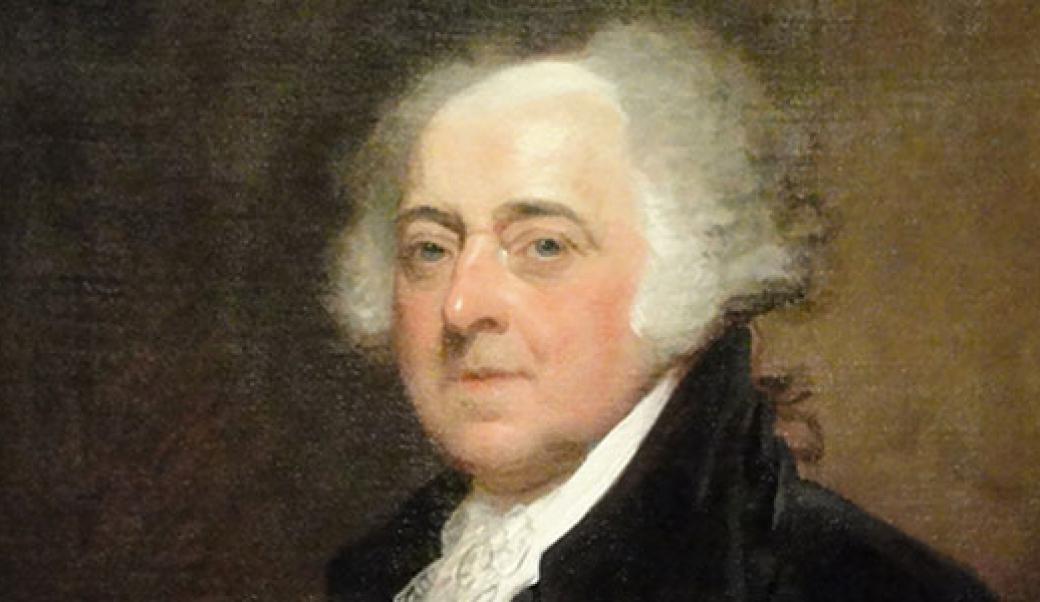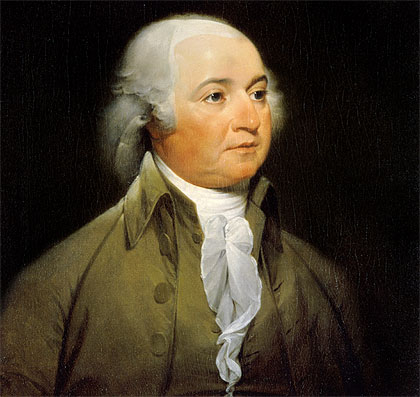(Braintree, Massachusetts, 1735 – Quincy, id., 1826) American politician who was the second president of the United States of America (1797-1800). George Washington’s refusal to run in the 1796 elections opened the way to the presidency for John Adams, an impetuous and vehement man who had already been a determining figure on the country’s path to independence.
John Adams (detail of a portrait of John Trumbull)
Born on October 30, 1735, in Braintree, Massachusetts, John Adams graduated in law from Harvard University, and gained notoriety in 1765 with his article “Dissertation on the Canon and Feudal Law”. »), In which he denied the legality of the Stamp Act taxes, although he opposed the violent revolt against the British colonial authority.
Driven by events towards independence convictions, John Adams was elected delegate of the Continental Congress of Philadelphia, before which he was in charge of defending the declaration of independence in 1776. After a trip to Europe in diplomatic functions, he collaborated with his cousin Samuel Adams in the elaboration of the constitution of the community of Massachusetts, and also participated in the peace talks with the old metropolis.
After serving for four years as the first ambassador of the new nation to Great Britain, where he wrote his influential Defense of the Constitutions of Government of the United States of America (1787-1788; Defense of the constitutions of government of the United States of America ), Adams returned to his country in 1789. During George Washington’s two terms, he served as vice president, and in 1797 he became the second president in American history.
Affiliated with the conservative Federalist Party, John Adams had to maintain a difficult balance between the pressures of his coreligionists, disgusted by his refusal to declare war on revolutionary France, and the criticisms of the radical sympathizers of the French Revolution, against who enacted harsh repressive laws. After being defeated by Thomas Jefferson in the 1800 elections, Adams retired to Quincy, Massachusetts, where he devoted himself to writing and studying until his death on July 4, 1826.






